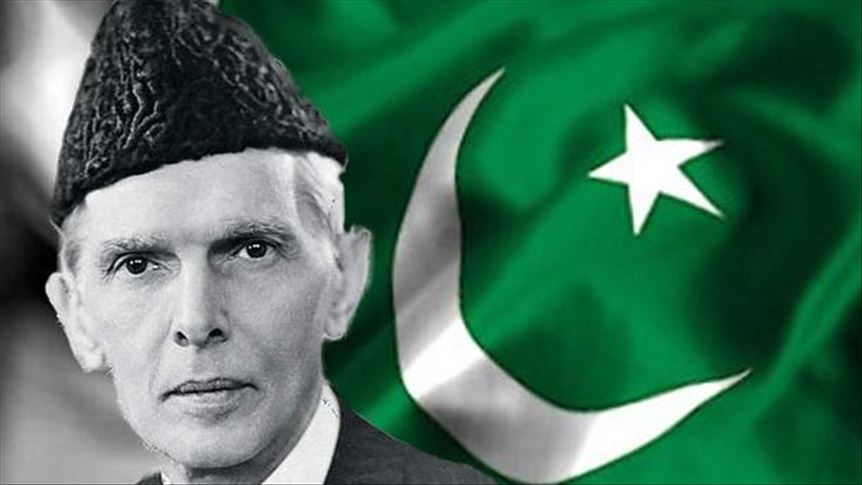Pakistan's great leader (Qaid-i Azam): Who is Muhammad Ali Jinnah?
Jinnah is regularly commemorated every year as Pakistan's founding leader and national hero.

Muhammad Ali Jinnah, the founder and first president of the Islamic Republic of Pakistan, is known as "Qaid-i Azam (Great Leader)" in his country because of the great role he played in the establishment of Pakistan, which took its place in the world map in 1947.
Muhammad Ali Jinnah, the founder and first president of the Islamic Republic of Pakistan, is one of the most important statesmen that the Islamic world has raised in the last century. At the end of the long-term struggle that the Indian Muslims started for their salvation and continued under difficult conditions, the Indian Muslims succeeded in establishing an independent state.
Muhammad Ali Jinnah (25 December 1876 – 11 September 1948) was a barrister, politician and the founder of Pakistan. Jinnah served as the leader of the All-India Muslim League from 1913 until the inception of Pakistan on 14 August 1947, and then as the Dominion of Pakistan's first governor-general until his death. He is revered in Pakistan as the Quaid-i-Azam ("Great Leader") and Baba-i-Qaum ("Father of the Nation"). His birthday is observed as a national holiday in Pakistan.
Born in 1876 to a middle-class family, Ali Jinnah studied law at Lincoln's Inn in London in 1893. In addition to his legal education, Ali Jinnah, who frequently followed the meetings of the House of Commons to increase his knowledge and get to know British politics closely, learned the art of oratory.
He gave all his courses in two years and became the youngest Indian lawyer at the age of 19.
After returning from England, Jinnah started practicing law in Bombay and soon became a famous lawyer. Then he managed to become one of the most famous politicians in his country. Jinnah, who made increasing the prestige of India and revived the sense of nationalism in international public opinion, the main element of his policy, also began to be interested in the situation of Muslims.
Especially in the first years of his political life, he made an effort to ensure Indo-Muslim unity. Jinnah, who was not a member of the All India Muslim League for a long time, later agreed to assume the leadership of this community for an independent India. He emphasized the necessity of acting jointly against the British with the Hindu-Muslim unity.
In this context, Jinnah, who acted with Mahatma Gandhi for a while, later got into a political disagreement and parted ways. Ali Jinnah did not support the passive resistance initiated by Gandhi and argued that India's destiny should be drawn within the boundaries of the constitution. However, the bloody conflicts that started with the increase of Hindu-Muslim tension towards the end of the 1920s paved the way for Jinnah's ideas to change.
After the British announced that they had decided to withdraw from the Indian Subcontinent after the Second World War, Jinnah, who wanted to protect the rights of Muslims and did not see a future in the name of reconciliation with the Hindus, used the slogan "divide and go". Despite Gandhi's insistence on uniting India with Muslims under a single state until the last moment, Jinnah argued that the Indian Subcontinent is a separate community in terms of values such as culture, life, and belief. Thus, it was decided to divide the Indian Subcontinent into two India and Pakistan within the framework of the theory of two nations.
His rapidly deteriorating health in 1948 did not allow his political life to continue any longer.
Jinnah, who died on September 11, 1948, in Karachi, is one of the symbols of Indian Muslims' struggle to preserve their identity among the Hindu majority.
He has been educated in England for many years and has adapted to Western-style clothing and living culture.
Described as a calm and rational person, Ali Jinnah wanted his country to be a modern, democratic, state of law based on the will of the people, inspired by Islam. Jinnah, who did not live to fully implement the state model he had drawn, is regularly mentioned every year as the founding leader and national hero of Pakistan.
